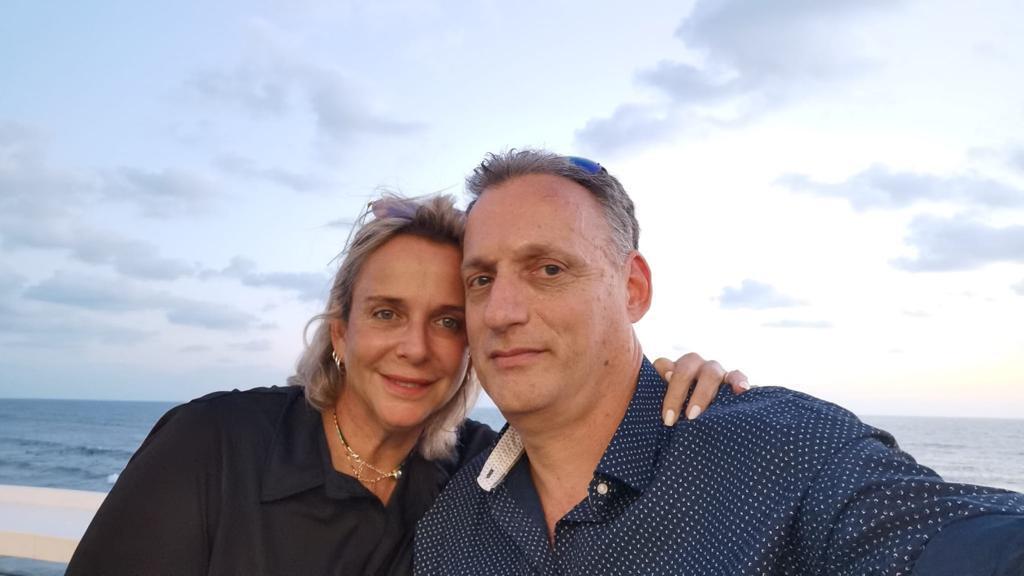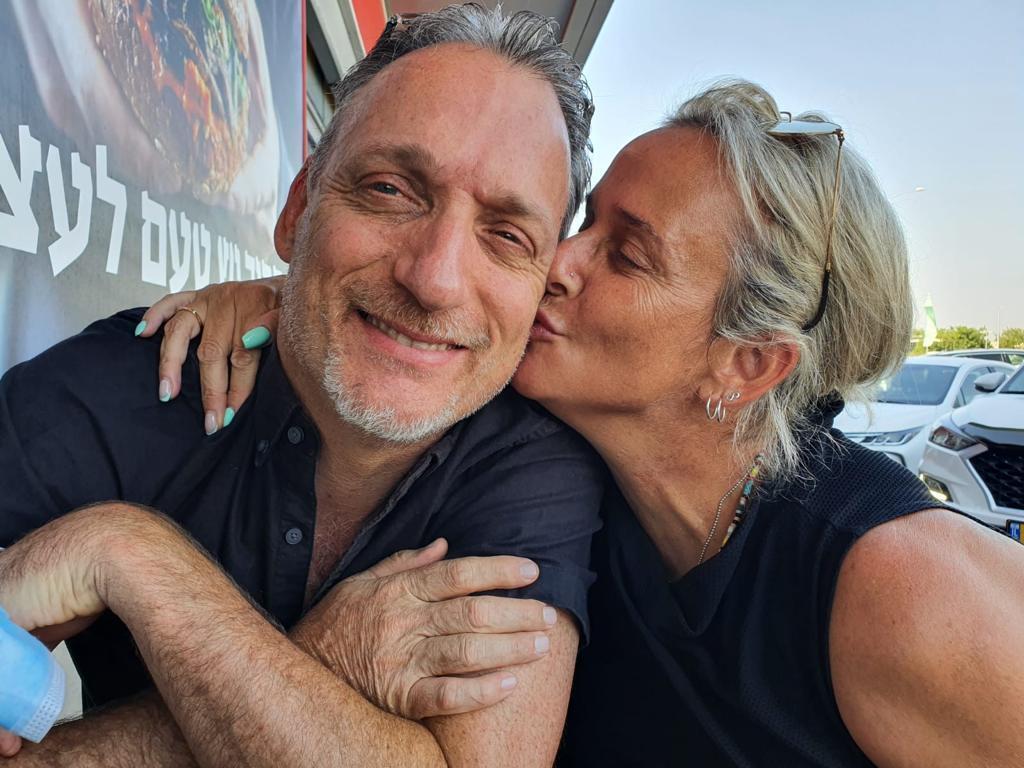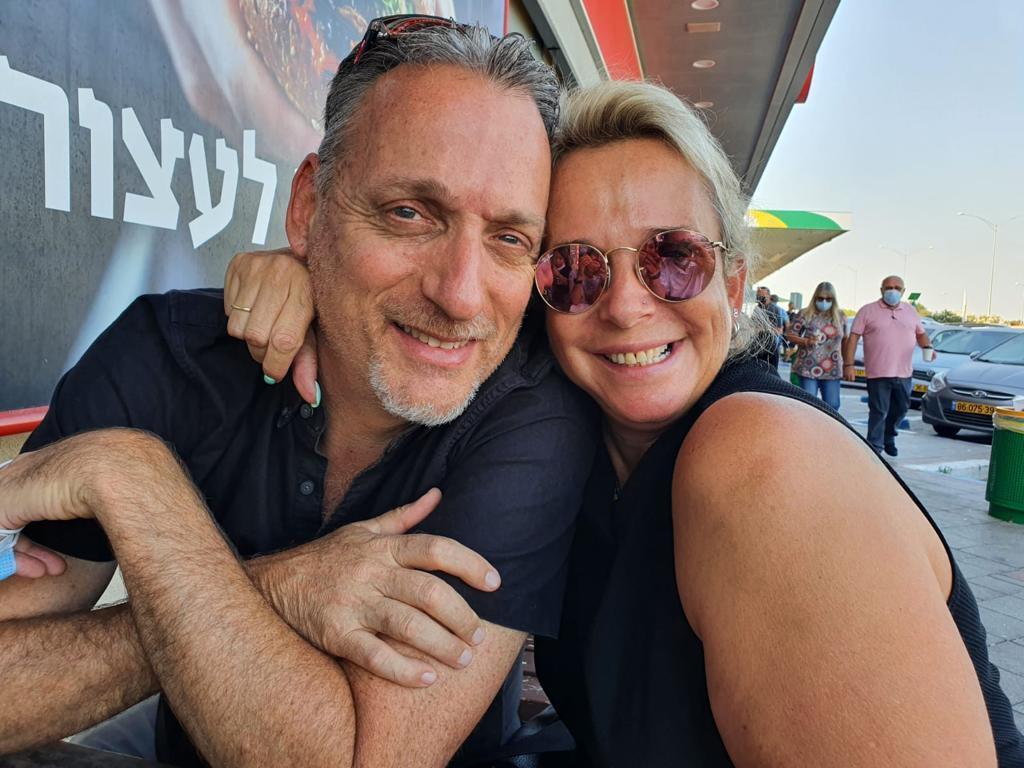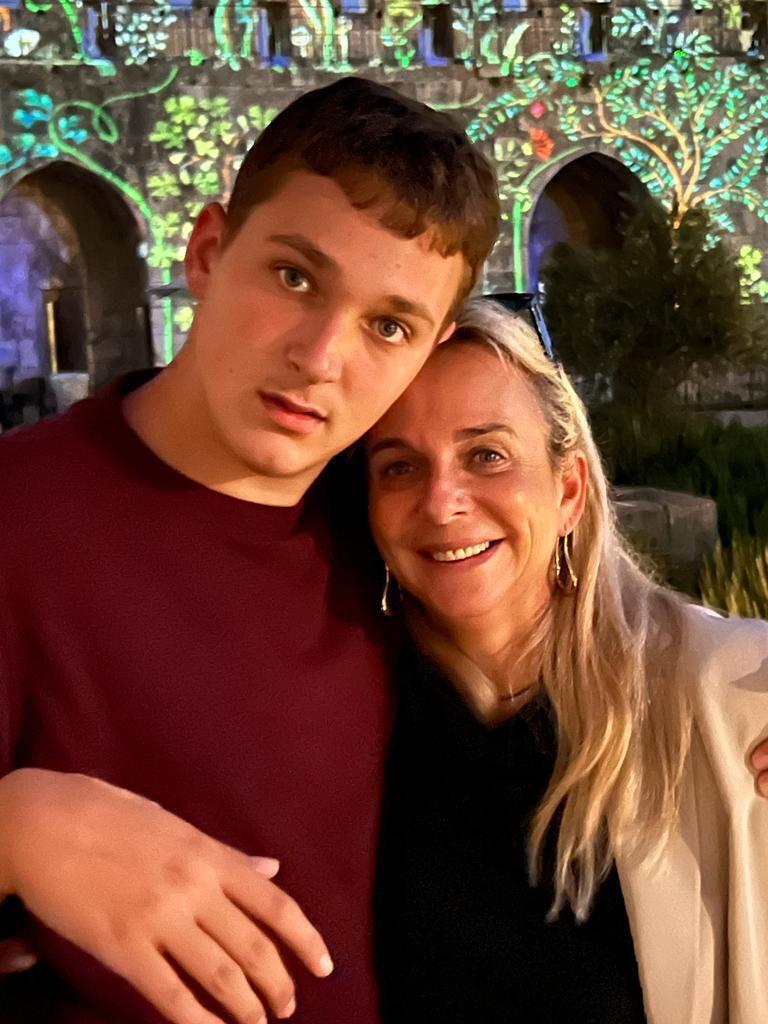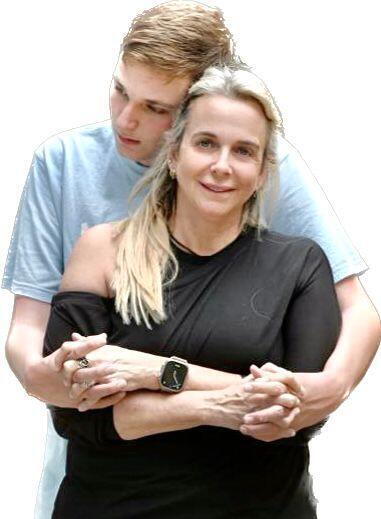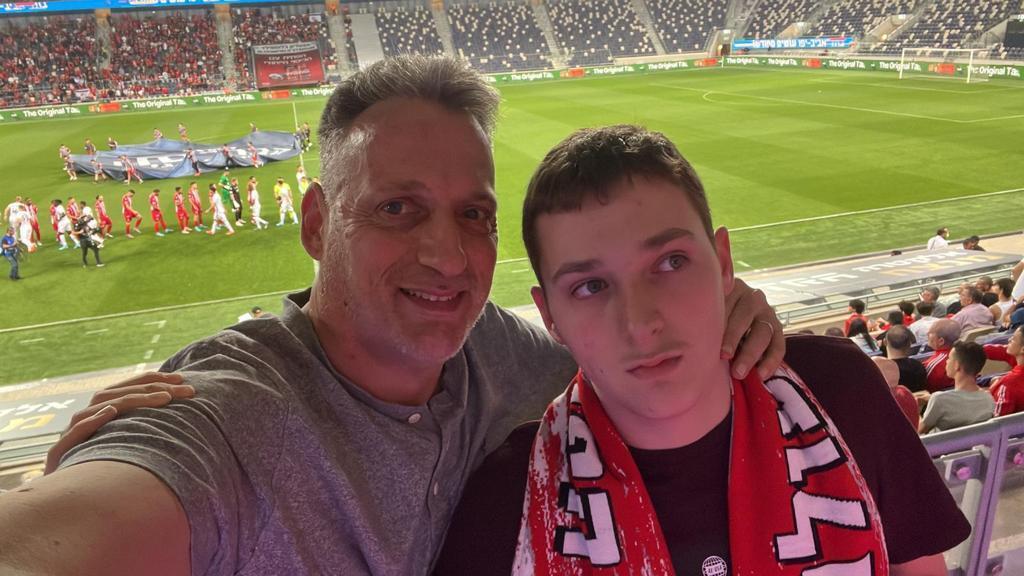Getting your Trinity Audio player ready...
We all know that when a couple becomes a family, it's a reason for joy, but it also brings along numerous additional challenges in their married life. The difficulties that Neri and Yael Josephberg, 54, faced were even more arduous.
More stories:
At 24, Yael experienced a sudden and unexpected stillbirth while pregnant with her first child during a vacation. "A gynecologist examined me, turned away, and told the nurse, 'Prepare her for delivery, the sac broke’ and left the room. I was in shock. I screamed and cried because I realized there was no baby. On the one hand, I went through a regular delivery with contractions and epidural, feeling a kicking baby coming out through the birth canal, but on the other hand, it died outside because its lungs were underdeveloped."
"The loss was greater than I could bear," she shared sorrowfully, "but Neri was there to gather the pieces. In our relationship, when one of us falls apart, the other automatically provides support. I sank into grief, and he embraced and strengthened me, going through it on my behalf, not thinking about himself."
Yael is the chair of the managing committee in ALUT (The Israeli Society for Autistic Children) and the head of an organization providing support to special-needs families.
Months after losing her first baby, she became pregnant for the second time. However, the joy was cut short when early prenatal protein tests delivered a dreadful result indicating a high probability of giving birth to a child with a disability. Following the doctor's recommendation, Yael waited an additional month to undergo amniocentesis, which confirmed that the child she was carrying had Down syndrome. In other words, in the sixth month, the couple faced one of the most difficult decisions in their lives: whether to continue with the pregnancy or not.
"I remember the doctor explicitly stating that it is not recommended to carry a pregnancy with a child with Down syndrome. I went before a medical committee to obtain approval, and in the 25th week, I underwent another stillbirth, the second one in my life."
While the nurse urged Yael to look at the baby as a way to process the loss, she vehemently refused. "On the side of the room, there was a cardboard box. Neri noticed the box where they had thrown the baby in. That horrifying image haunted him for many years. This time around, he was the one falling apart, and I was the one holding us together."
The difficulty of building a family and coping with the loss of two pregnancies in succession led to several moments of crisis in Neri and Yael's relationship. "I fell apart, shouted and we had arguments over the smallest things because we tried to live a routine life while a heavy cloud hovered above us - the dream of starting a family that we simply couldn't fulfill," she explains.
So how did you both cope with all this grief?
"Each of us dealt with it in our own way, so there were moments of 'solitude,' but on the other hand, there were moments of 'togetherness' that kept us united as a couple."
Failure is not an option
After the harsh blow, the two flew to the United States for three weeks to process what had happened and make decisions about their future. "In the end, we returned to Israel with a very clear decision - we will have a child! Failure is not an option."
At the age of 26, Yael entered her third pregnancy. Shortly before labor, Yael suffered from complications and had to undergo an emergency operation. "They told Neri to go see his son, but he refused to see the baby until he knew for sure that I was okay. He waited for four hours to see me before meeting him for the first time. It was first the relationship, meaning me, and only then the children, which is not common. But it was worth it. Do you know what it's like to leave the hospital after two stillbirths as a family, father, mother and child? We entered as two and left as a family!" she says excitedly.
Yael shares that with the transition to parenthood and after the initial excitement settled, she discovered that she suffered from anxiety due to the two traumatic births she experienced. "After a while, small arguments and disagreements about raising the child started to arise, but Neri was an exemplary father. Since I was anxious, he took the lead, bathed, diapered and was an active partner."
Yael emphasizes once again the balance of power in their relationship - when one side fell apart, the other side could grieve while also knowing how to support. "When I cried and fell apart, he saw me and my distress. There were evenings when he came back from work and told me to go out with friends and get some fresh air. He was very sensitive to me and my needs."
Unfortunately, after the birth of their first child, Yael experienced another stillbirth, the third one in total. "In the 22nd week, I arrived with a trickle of amniotic fluid and feared infection spreading to me and the fetus, and I underwent a sudden stillbirth. But we couldn't break down this time because we had a child. Daniel was already three years old when we returned home together, and suddenly he cried in the car that we did something to his brother. In other words, he understood what happened before we told him, and it broke our hearts."
Yael emphasizes that throughout the entire journey and three stillbirths, there were no accusations or marital criticisms, and she and Neri managed to preserve unity, understanding and mutual sensitivity.
The couple didn't lose hope, and against all odds, they had a clear goal in mind - to continue building their home and family. After a few months, Yael became pregnant again, and after a cesarean section due to a drop in heartbeat, their second child was born. The two spent hours in the neonatal intensive care unit, united in their happiness.
Then, four and a half years later, against all expectations, Yael became pregnant for the sixth time. "It was not planned or expected. Hormonally, there was no chance of getting pregnant, and I had no desire after two children and three stillbirths, but I was happy. At first, Neri found it a bit challenging, but then we talked, and he asked that we treat this pregnancy as a gift and whatever happens, happens. However, it was a joy tinged with sorrow when, in the third month of pregnancy, Yael's mother fell ill and passed away.
"My father passed away when I was two and a half, so she was my entire world. Those two weeks were spent running to hospitals just to be with her. Even though I was at risk during pregnancy, nothing mattered to me except her."
Thus, after her mother's passing, new life came into the world - at the beginning of the ninth month, Yael underwent another emergency cesarean section due to pregnancy complications. The surgery became complicated, and after a traumatic and difficult birth, Michael, their third son, came into the world.
‘During the period of mourning, he was my light’
Yael describes him as a ray of light amid the darkness. "I used to come home after births, and my mother would greet me and prepare the house. But that time, I entered with Michael, who brought light into the darkness. During the period of mourning, he was my light, and there was an immediate connection from the first cry when I intuitively knew he was mine forever."
When he was one and a half years old, Michael was diagnosed with an autism spectrum disorder. For a whole year, Neri and Yael saw Michael as "a regular child but more serious," she says.
What do you mean?
"I noticed that he was more serious, and it was harder to make him laugh. He was different from his siblings, but each of them was unique in their own way. Every child is a world of their own, so I didn't attach importance to it and simply felt happy. Maybe if I were in a different period, I might have noticed something."
And yet, how did you find out that Michael was on the spectrum?
"When he was one year old, we took him for a routine developmental check-up. The nurse asked if he responded to his name, and I instinctively said yes, but I found myself pondering the question, as did Neri. Two days later, Michael sat with his back to the door, and Neri stood behind him with two pot lids, making loud noises like cymbals. Michael sat there, completely unresponsive. We thought he might be deaf."
During the examination, it was found that Michael had good hearing. The two decided to consult a developmental doctor, and after only ten minutes, the doctor diagnosed Michael with PDD-NOS (pervasive developmental disorder-not otherwise specified).
When we left the doctor's office, we were both clueless and confused. We didn't know what it meant, so I said to Neri, 'Well, it's P-D-D-N-O-S, at least he's not autistic.' When we got back home, we started researching what it meant, and that's when we found out he was on the spectrum. After a few minutes, Neri decided that we would leave everything behind and book two plane tickets to Thailand for two weeks, just the two of us.
We flew the next day, and Neri's mother took care of the kids while we reset our bodies and minds, knowing that when we returned, we would start our new life project. Something happened to us that made us realize that our lives would change completely and forever."
As stable as their relationship was, the diagnosis brought upheavals, arguments, challenges and significant changes to their relationship and family life. "Our stable relationship began to falter, but I was determined that 'this is what we have,' and with it, we will prevail. It took Neri more time to come to terms with it. It was hard for him to accept the fact that he had a special child. When a child is born, from day one, you build a path and dreams for their future, and suddenly, it's shattered. Everything we knew until then was shaken."
And then what happened?
"There's no middle ground when it comes to relationships. It's either all in and strong together, or nothing and separate. To reach a state of 'together,' you need to go through a process of adjusting to the new situation, recognizing and understanding what it means for me as a mother, for him as a father, for us as a couple and then as a family, because autism didn't come for a short visit; it's here to stay. We're actually changing our way of thinking. Of course, the relationship is the anchor, and when it's strong, the family is strong, and then we can move forward."
According to her, there's an unspoken separation of roles between the partners that needs to be handled optimally: one side gives, while the other side receives because it takes longer for them to cope with the changes. It's essential to allow this side to process the information and expected changes in their own time, without fighting or imposing actions, criticism or judgments on them because, in any relationship, each individual is unique.
Yael will apply this tip to herself: During the first years after Michael's birth, she had to take the reins because it was more challenging for Neri to cope with the diagnosis. She gave him the space and time he needed to come to terms with it.
"Neri wasn't actively involved, but he was present in the conversation. We talked about autism from day one. There was no place where it wasn't discussed, and we also shared with the children, according to their capacity to understand. It's necessary because when the family talks about autism, it seeps in and you acknowledge it."
Yael notes that from the moment of diagnosis, parents embark on their life project. "When Michael was diagnosed with low-functioning and had no eye contact or speech, I worked on it until I found a solution – a specialist who taught him to speak. Later, we utilized our rights from the national insurance, such as employing a caregiver at home, which made a real difference. It allows us to be a couple – go out together, experience intimate moments and also enables the family to have normative moments of regular experiences because we can't take away the lives of Michael's siblings. We didn't give up on a framework of tailored special education that promotes the child and operates until a quarter to five, to lead a normal life as much as possible."
They are still dealing with their “life project," as Yael defines it, and doing everything to preserve their strong relationship. "You have to understand that it's okay not to agree," Yael summarizes, emphasizing that any disagreement or argument should lead to a conversation. "The goal is to find the ultimate formula and reach conclusions together because that's the only way to maintain a stable and healthy relationship amid all the chaos of life."


